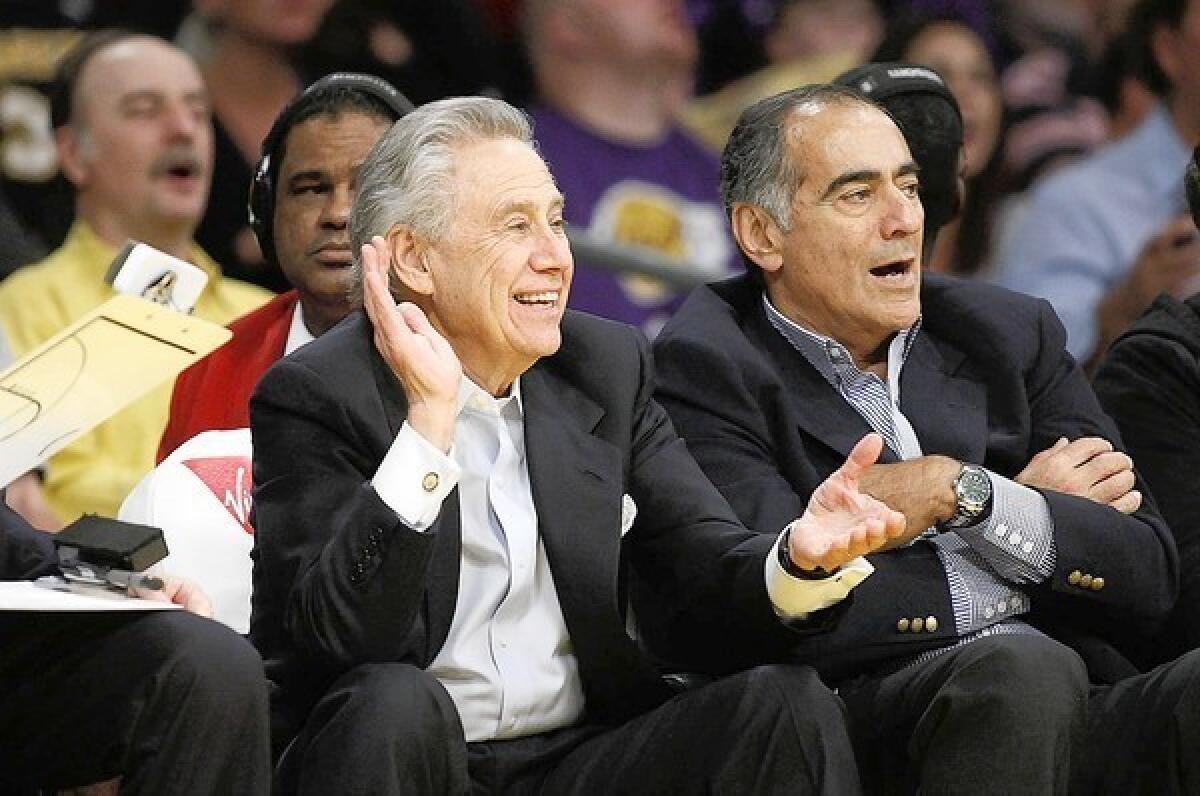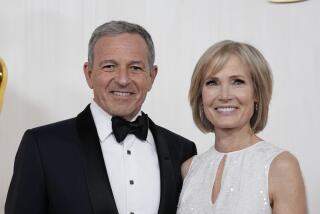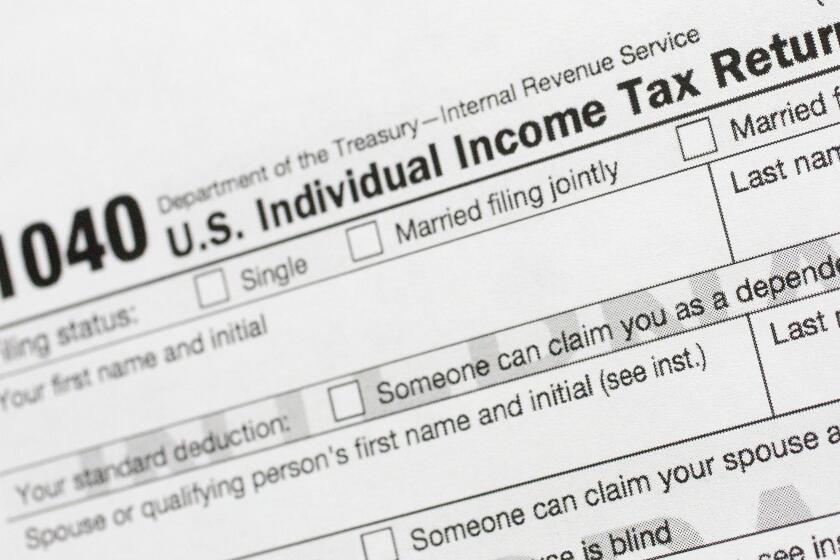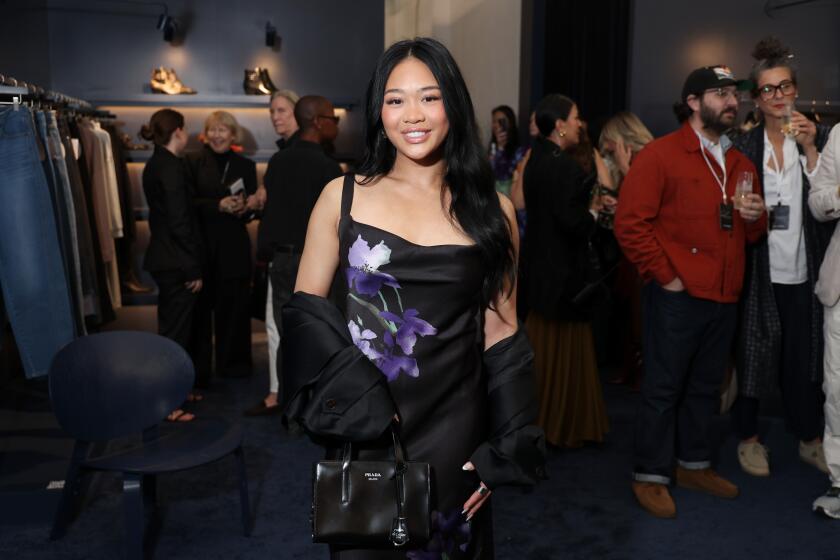Shake-up at AEG clouds NFL’s return

After seeking a buyer for months, the billionaire owner of entertainment giant AEG abruptly took the company off the market, leaving a parade of high-profile suitors empty-handed and damaging the prospect that professional football will return to Los Angeles any time soon.
Philip Anschutz announced Thursday that he is retaining ownership of Anschutz Entertainment Group and parting ways with Chief Executive Tim Leiweke, the company’s public face and force behind the development of L.A. Live and the plan to build an NFL stadium downtown.
Leiweke’s departure stunned civic leaders and political figures. He had orchestrated the complicated political agreements required to bring a National Football League franchise to the nation’s second-largest market. He was AEG’s point man for the stadium deal, and even Anschutz has credited Leiweke with selling him on the idea.
“Tim Leiweke was always a proponent of the stadium. Phil Anschutz was always reluctant about the whole idea,” an NFL source said. “With Tim gone, and with Anschutz’s proposal being unacceptable to the NFL, it would seem like the downtown stadium is dead.”
Leiweke was apparently unaware that Anschutz was about to take the company off the market, and learned of the plan only at the last minute, according to sources familiar with matter.
Contacted at home, Leiweke would not discuss his future. He told The Times that he plans to “resurface” in a few days. “Right now I’m going to take a deep breath and enjoy life, and then I’ll talk next week.”
AEG is a sprawling entity that owns and manages a variety of sports and entertainment properties, including L.A. Live, the L.A. Galaxy professional soccer team and a worldwide concert-promotion business. The company also owns a minority stake in the L.A. Lakers.
In a rare interview at AEG’s downtown headquarters, Anschutz, 72, was circumspect about Leiweke’s departure. He vowed to take a more active role in managing his empire, though he did appoint longtime finance chief Dan Beckerman to be the new president and CEO.
Anschutz said he terminated the sale in part because the closely watched process, which the company announced with great fanfare in September, had become a distraction interfering with day-to-day operations.
“This became a very noisy process,” he said. “Lots of people. Lots of talking heads. Lots of unnamed experts and lots of opinions. Many of them were wrong, but that didn’t seem to dampen their enthusiasm. So that was a contributing factor. It just got too noisy. I didn’t like the process.”
Anschutz also indicated that he didn’t get the price he was seeking. “We were very clear from the start: Unless there was the right buyer, the right set of terms and the right price, we might not sell.... We haven’t been misleading.”
Among potential bidders said to be interested in AEG were Los Angeles billionaire Patrick Soon-Shiong and powerhouse Santa Monica investment firm Colony Capital. Guggenheim Partners, which led the consortium that bought the Los Angeles Dodgers, also was said to be interested.
Colony Capital and Guggenheim declined to comment. Soon-Shiong couldn’t be reached for comment.
To this point, Anschutz and the NFL have not been able to agree on a deal, and Leiweke has continually worked to keep the NFL engaged.
Several NFL teams have considered relocating in recent years — among them the San Diego Chargers, the St. Louis Rams and the Oakland Raiders — but none has been amenable to Anschutz’s terms.
Anschutz has demanded that a deal be contingent upon him owning a large piece of a team at a discount. That is unappealing to NFL owners, who don’t want to sell at a below-market price, especially now that the league has a labor agreement with players that favors owners, record-setting TV deals and unparalleled popularity.
Anschutz also wanted to use an arrangement similar to the one the Lakers have at Staples Center, in which the team is the tenant and AEG controls all the marketing and suite sales.
The NFL calls that “asset stripping,” and AEG has been unable to find a team willing to go along. Teams don’t want a middle man dealing with their premium customers; that’s one of the many benefits of owning an franchise.
In the interview with The Times on Thursday, Anschutz expressed interest in the NFL but indicated the next move is up to the league. “It’s the state, it’s the city, it’s AEG, but there’s another chair at this table,” he said. “The NFL has to finally decide what do they want to do and where do they want to do it? We’re open for business here.”
NFL Commissioner Roger Goodell has repeatedly said the league won’t rush into a deal in L.A. From the league’s perspective, neither the AEG proposal nor Ed Roski’s stadium concept in City of Industry is the right deal, and that’s why one NFL source said the L.A. situation had been in a “vegetative state” for months.
But because it’s in the NFL’s interest to keep as many stadium options on the table, thereby creating competition that ultimately could lead to a more attractive deal, the league seldom publicly forecloses on a stadium proposal. The NFL is a re-animator in this sense, and has even circled back to look at possibilities in Carson, at Hollywood Park and at Dodger Stadium.
As for the now-scuttled sale of AEG, many experts in the sports business and on Wall Street had doubted the viability of the idea.
Though a constellation of glittering assets, the company itself is considered to be large and unwieldy with businesses that don’t necessarily fit well together.
“If you’re interested in buying a chunk of the Lakers … why would you want to buy the entertainment business or the arena-management business?” said Michael E. Rapkoch of Sports Value Consulting in Dallas.
Anschutz also was pushing for an extremely high price for the company, which potential bidders were unlikely to meet, they said.
Interested parties were willing to pay $6 billion to $7 billion, according to a well-placed consultant familiar with the sports and media businesses. But Anschutz reportedly was seeking $8 billion to $10 billion.
Anschutz probably would have sold AEG had he received a sky-high valuation, but otherwise was content to stand pat, the consultant said.
More to Read
Inside the business of entertainment
The Wide Shot brings you news, analysis and insights on everything from streaming wars to production — and what it all means for the future.
You may occasionally receive promotional content from the Los Angeles Times.











